Books

Rethinking Urban Migration: Policy Options for Cities in Latin American and the Caribbean
with Matias Busso and Paul E. Carrillo. Book available in English, Spanish, and Portuguese. Inter-American Development Bank, Washington, D.C., 2023.
The potential challenges associated with migration to cities have justifiably received much attention. But they may obscure the significant opportunities that migration also offers for receiving communities seeking to boost economic development. This report is an invitation to rethink urban migration, paying due attention to the opportunities for local economies that emerge with the arrival of both internal and international migrants and encouraging policymakers to capitalize on them. By tailoring policies to specific contexts and bridging short-term constraints with long-term solutions, cities can leverage the skills and diversity migrants bring, fostering innovation, productivity growth, and prosperity for all. The pages of this report offer guidance on how to go about this task.
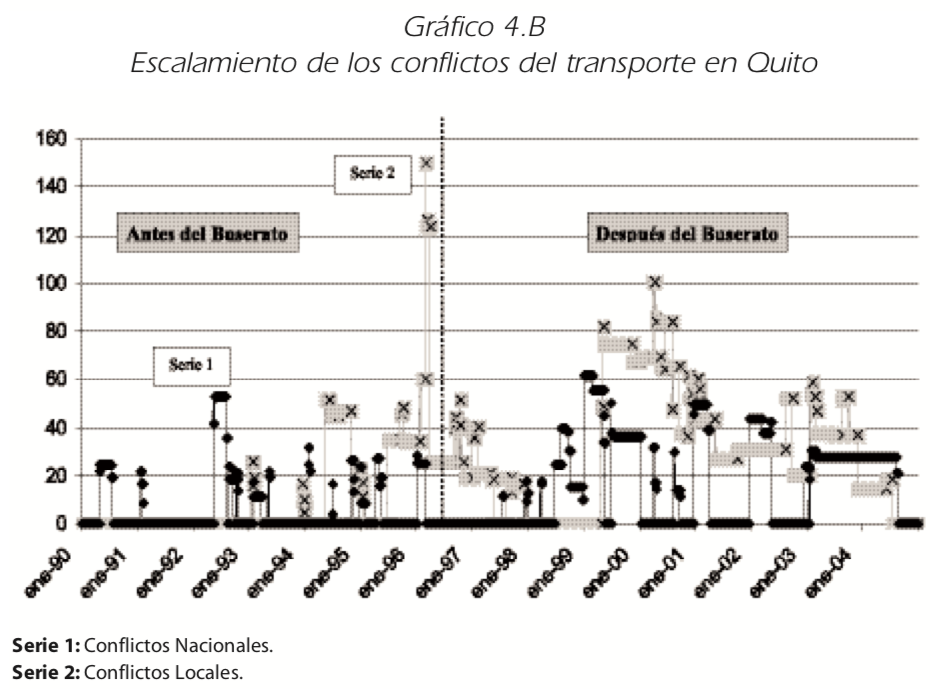
Conflict and Local Government: The Case of Urban Transportation in Quito
Book available in Spanish only. Original Title: “Conflicto y Gobierno Local: El Caso del Transport Urbano en Quito”. EdicionesAbyaYala y Flacso, Sede Ecuador, 2007.
The COVID-19 pandemic is having devastating consequences for the livelihoods of Latin Americans, in particular among the poor and vulnerable. The focus of this report is on how to boost inclusive growth—growth that at the same time reduces inequality. While this is always important, the current crisis has brought this agenda to the forefront. But inequality comes in many dimensions: in incomes, in wealth, in access to education and to other services. But less is known about inequality across regions within countries. And yet this is critical to be able to craft effective policies to boost inclusive growth. If inequality across regions is unimportant, then policies to further equality likely should be nationally planned and administrated. If inequality has a regional dimension, then specific policies to assist poorer areas should be part of the policy mix and subregional authorities should likely develop specific policies for their own territories. This chapter discusses the measurement of regional inequality, whether regional inequality in Latin America and the Caribbean is exceptional, whether poorer regions are converging, and how regional inequality contributes to overall inequality.
Book chapters
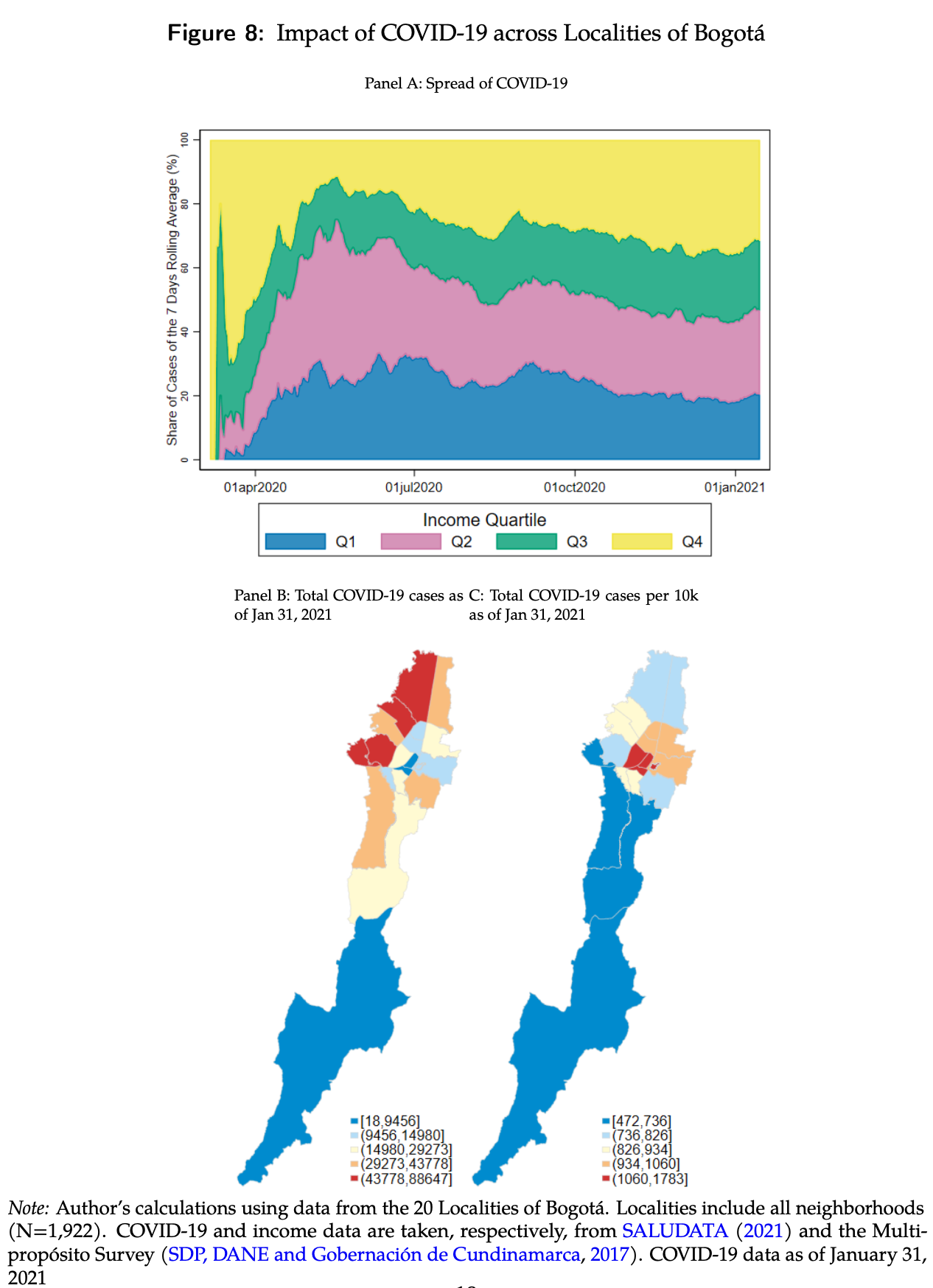
Cities and Public Health in Latin America
Chapter 18 in González-Pérez, Irazábal, and Lois González (eds.), “The Routledge Handbook of Urban Studies in Latin America and the Caribbean”, Routledge, 2023.
This chapter presents an overview of how health outcomes vary across cities in Latin America and discusses some of the known drivers of this variation. There are large disparities in outcomes across cities and across neighborhoods of the same city. Because health is closely related to the socioeconomic conditions of individuals, part of the spatial variation reflects residential segregation by income. Local characteristics also have a direct effect on health outcomes, shaping individuals’ access to health services and the prevalence of unhealthy lifestyles. In addition, urban environments affect health through natural atmospheric conditions, through local infrastructure in particular water, sanitation, and urban transit and through the presence of urban externalities such as traffic congestion, pollution, crime, and the spread of transmissible diseases. The COVID-19 pandemic illustrates many of these patterns, since the impact of the disease has differed sharply across cities, and much of this variation can be explained by observable local characteristics particularly population, connectivity with other cities and countries, income levels, and residential overcrowding.
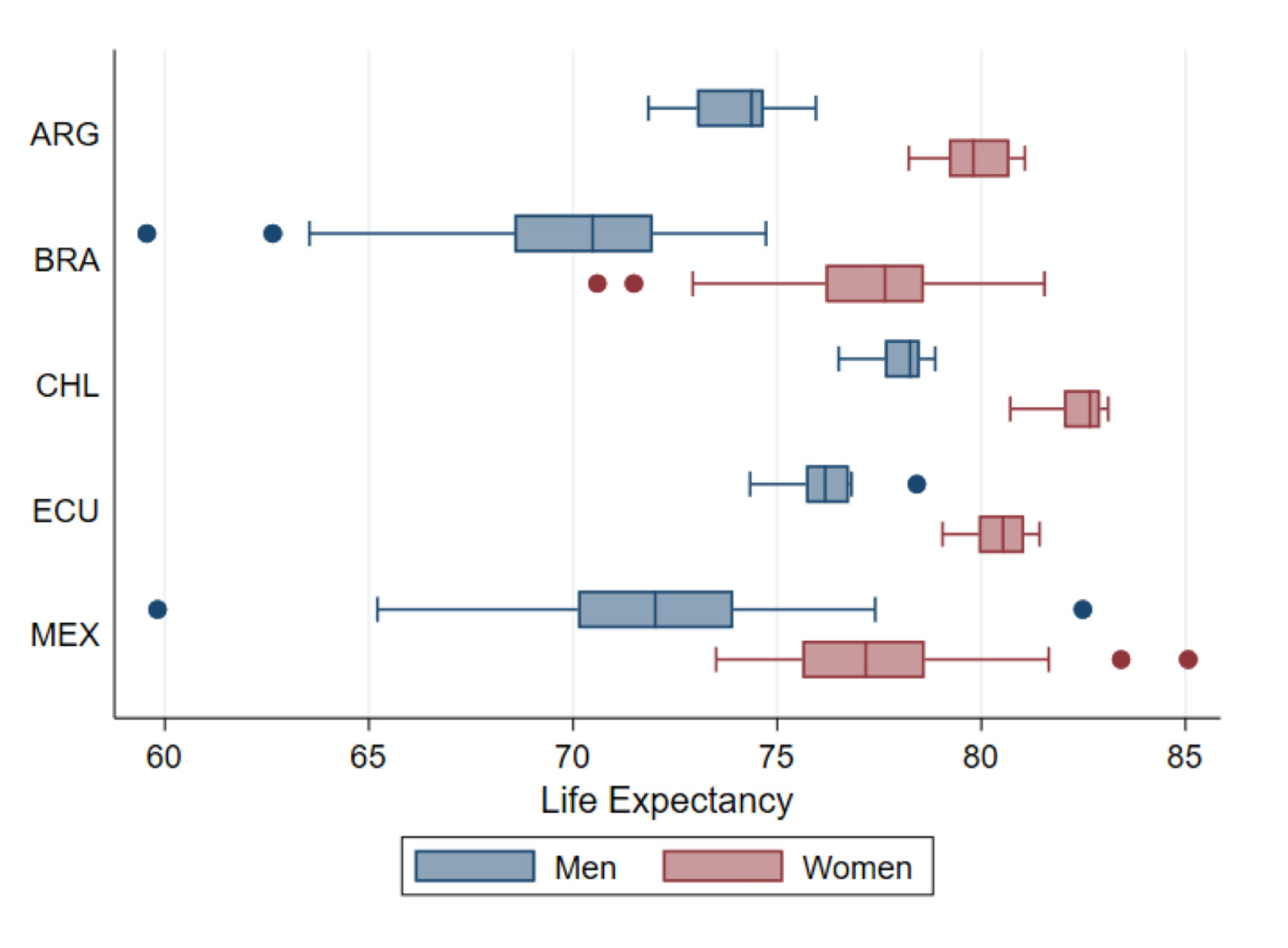
Spatial health inequality in Latin American cities: Magnitude, drivers, and policy alternatives
with Juliana Pinillos. Chapter 8.3 in Libertun de Durén (ed.), “Inclusive Cities: Healthy Cities for All”, Inter-American Development Bank, Washington, D.C., 2022.
Book available in English and Spanish
Spatial health inequities are pervasive across and within Latin American cities. This article explores the magnitude of spatial inequalities in health outcomes, their drivers, and policies that can be deployed to address them. Life expectancy, the burden of noncommunicable diseases, and, more recently, the impact of COVID-19, all exhibit large geographic disparities. These variations are correlated with individual-level socioeconomic factors, such as low schooling levels and high poverty rates. Nevertheless, spatial health inequalities are not only a reflection of the residential clustering of vulnerable individuals. Local environments themselves can improve or further deteri orate their communities’ public health outcomes. These include weather conditions, public utilities, recreational infrastructure, and externalities—notably air and noise pollution. The current evidence suggests that existing policy tools available to local and national governments can be effective in creating healthier built environments, reducing and preventing negative externalities, and promoting healthier lifestyles in cities and neighborhoods.
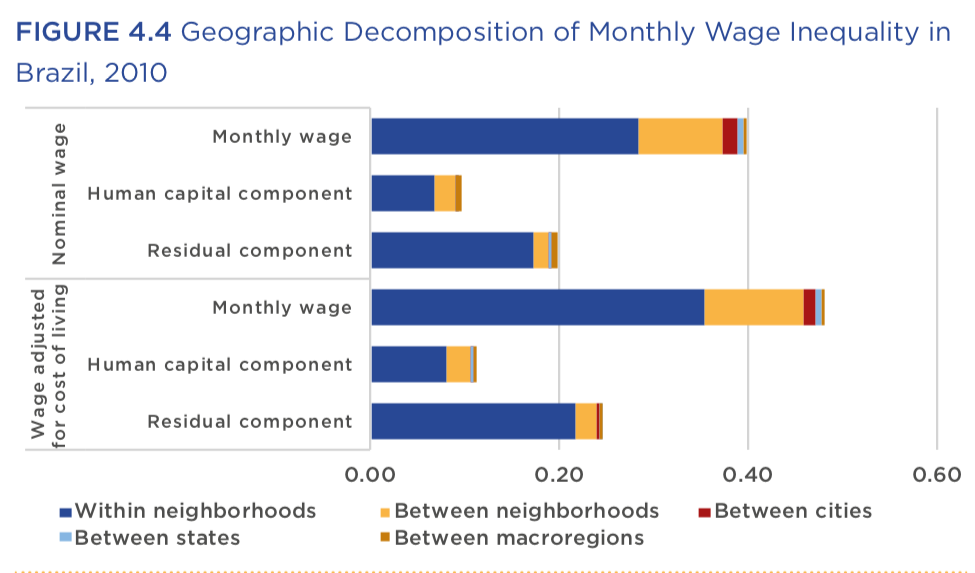
Regional Disparities and Urban Segregation
with Julian Messina. Chapter 4 in Busso and Messina (eds.), “The Inequality Crisis: Latin America and the Caribbean at the Crossroads”, IADB, 2020.
Book available in English and Spanish
All countries, developed or underdeveloped, have rich and poor regions. And both types of regions have cities and rural settlements that are themselves characterized by stark differences in income and access to services. Within cities one can observe substantial variations in income, wages, access, and quality of services across neighborhoods and households. This chapter provides a snapshot of the geography of inequality, highlighting subnational differences in Latin American countries. The chapter first characterizes income and wage gaps across major regions of eleven Latin American countries. Average earnings in the country’s richest region can be up to three times higher than in the poorest. A decomposition analysis shows, however, that regional disparities account for only 4 percent of the overall wage inequality in this group of countries, compared with almost 10 percent stemming from cross-country disparities. Most of the wage inequality is explained by intraregional differences. The chapter then looks at spatial inequality at smaller geographic scales, focusing on the region’s largest country. In Brazil, less than 1 percent of total wage inequality is explained by differences among large regions and states, and an additional 2 percent by differences across cities. By way of contrast, differences across neighborhoods account for 9 percent. To shed light on these results, the latter part of this chapter explores recent academic research on possible causes, consequences, and alternative policy responses to spatial inequality within cities.
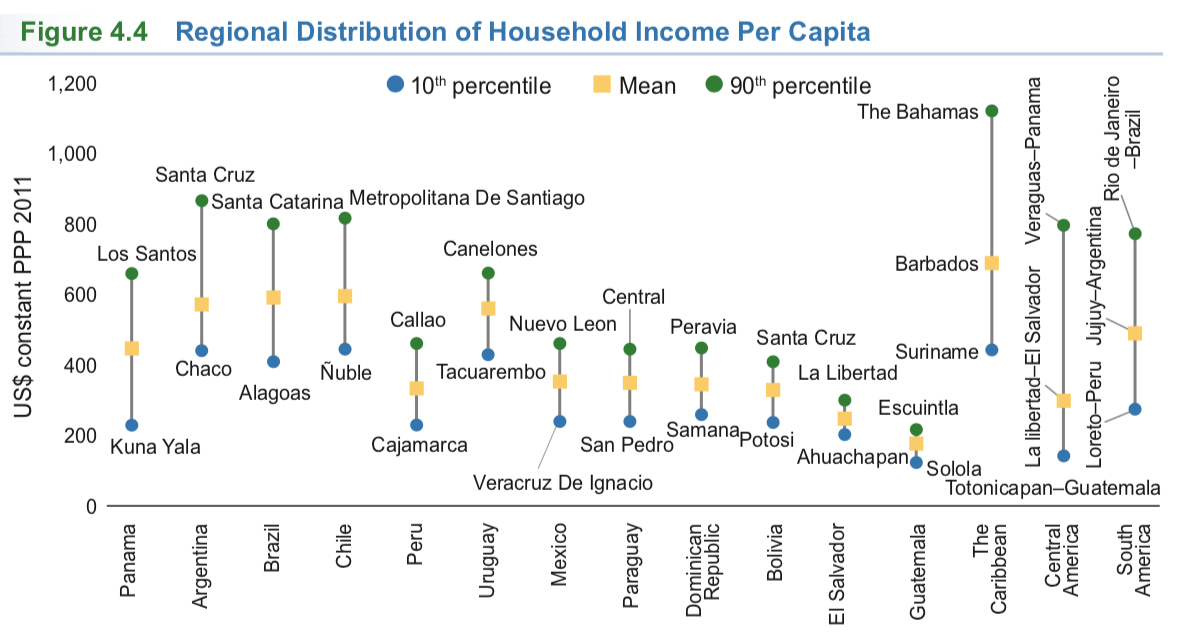
The Spatial Dimension of Inequality
with Julian Messina. Chapter 4 in Nuguer and Powell (eds.), “Inclusion in Times of Covid-19”, IADB, 2020.
Book available in English and Spanish
The COVID-19 pandemic is having devastating consequences for the livelihoods of Latin Americans, in particular among the poor and vulnerable. The focus of this report is on how to boost inclusive growth—growth that at the same time reduces inequality. While this is always important, the current crisis has brought this agenda to the forefront. But inequality comes in many dimensions: in incomes, in wealth, in access to education and to other services. But less is known about inequality across regions within countries. And yet this is critical to be able to craft effective policies to boost inclusive growth. If inequality across regions is unimportant, then policies to further equality likely should be nationally planned and administrated. If inequality has a regional dimension, then specific policies to assist poorer areas should be part of the policy mix and subregional authorities should likely develop specific policies for their own territories. This chapter discusses the measurement of regional inequality, whether regional inequality in Latin America and the Caribbean is exceptional, whether poorer regions are converging, and how regional inequality contributes to overall inequality.





